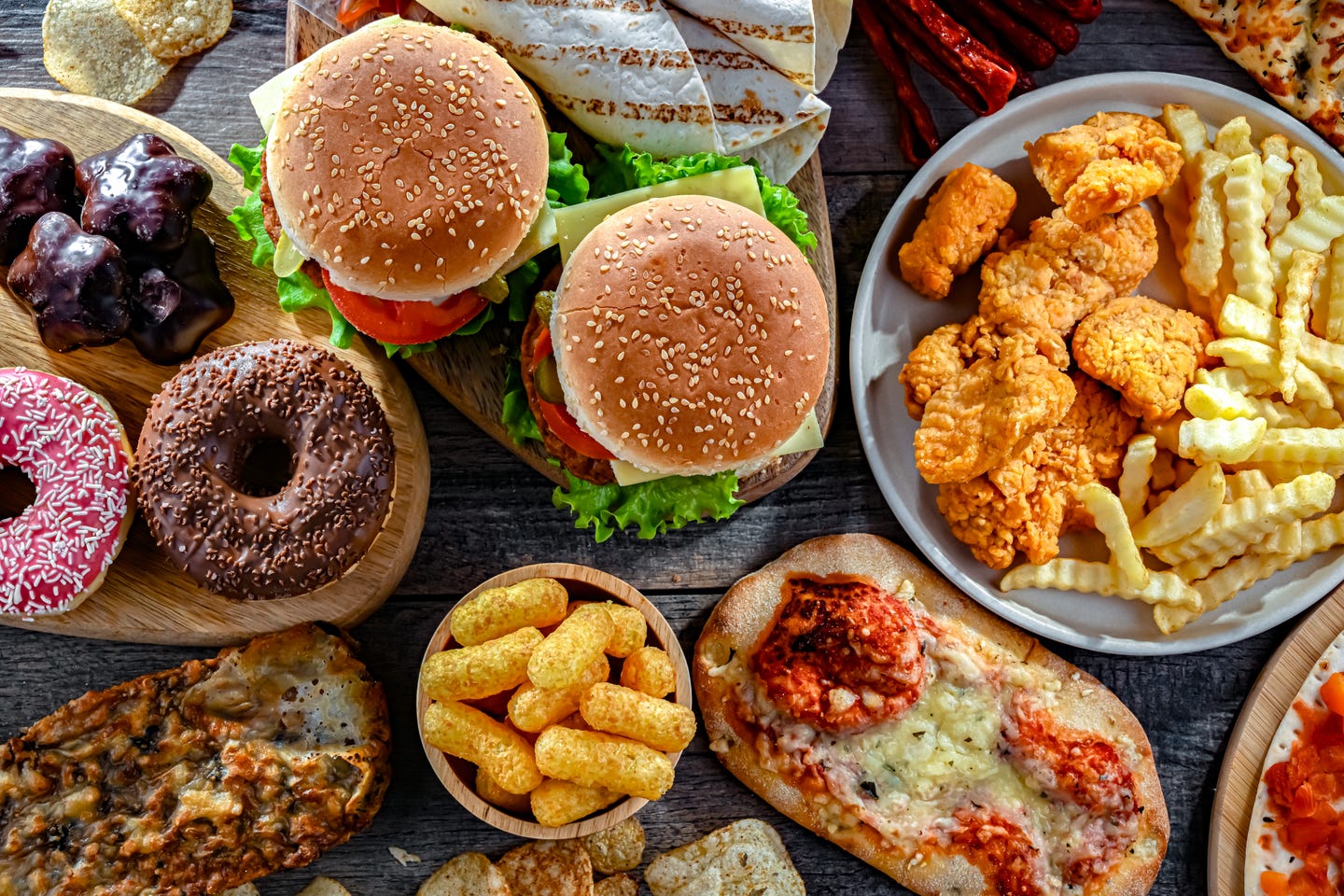26-Year study links processed foods to Parkinson’s disease
A 26-year study of over 42,000 adults links high intake of processed foods to early signs of Parkinson’s disease, highlighting diet’s role in brain health.

New study finds a link between processed foods and Parkinson’s risk, showing diet may impact brain health years before symptoms appear. (CREDIT: Shutterstock)
Breakfast cereal, packaged snacks, and sugary drinks may seem harmless in moderation. Yet new research suggests that eating too many highly processed items could raise the odds of developing early signs of Parkinson’s disease.
The findings were published May 7, 2025, in Neurology, the journal of the American Academy of Neurology. The study followed more than 42,000 adults for up to 26 years, examining long-term eating habits and subtle health changes that often appear decades before Parkinson’s disease is diagnosed.
What Early Parkinson’s Looks Like
Parkinson’s disease is usually recognized by symptoms like tremors, slow movement, and poor balance. But doctors now know that warning signs can begin many years earlier. These early markers include changes in sleep, mood, digestion, and senses.
Researchers tracked signs such as rapid eye movement sleep behavior disorder, depression, chronic pain, daytime sleepiness, impaired sense of smell, and reduced color vision. These symptoms can quietly develop during what doctors call the “prodromal stage.” It is a phase when brain degeneration has already begun, though typical movement problems are not yet present.
Diet and Brain Health Connection
“Eating a healthy diet is crucial as it has been associated with a lower risk of neurodegenerative diseases and the dietary choices we make today can significantly influence our brain health in the future,” said Xiang Gao, MD, PhD, of the Institute of Nutrition at Fudan University in Shanghai, who led the study.
Dr. Gao emphasized that diet is emerging as a major factor in how Parkinson’s disease develops. “Our research shows that eating too much processed food, like sugary sodas and packaged snacks, might be speeding up early signs of Parkinson's disease,” he said.
Related Stories
- Dogs can detect Parkinson’s disease by sniffing skin, study finds
- CRISPR helps scientists identify key genes in the development of Parkinson’s disease
Inside the Study
The project included 42,853 adults with an average age of 48 at enrollment. None had Parkinson’s at the start. Participants completed medical exams, detailed health questionnaires, and repeated food diaries every two to four years.
Food records listed everything from condiments and sauces to hot dogs, chips, yogurt desserts, sodas, and packaged cakes. For consistency, one serving equaled a can of soda, a single hot dog, one ounce of chips, a slice of cake, or a tablespoon of ketchup.
Based on their records, participants were split into five groups. The highest group consumed 11 or more servings of highly processed food daily. The lowest group averaged fewer than three servings. After accounting for smoking, age, exercise, and other factors, the results stood out.
People in the highest group were 2.5 times more likely to have at least three early signs of Parkinson’s disease compared to those in the lowest group. When the researchers broke down symptoms individually, they found nearly all early Parkinson’s markers were linked to higher processed food intake—except constipation, which showed no association.
Why Processed Foods May Matter
Highly processed foods tend to contain high amounts of added sugar, unhealthy fats, and artificial additives. These ingredients can trigger inflammation, stress cells, and interfere with gut health, which is increasingly tied to brain function.
Some studies suggest that preservatives and emulsifiers may alter the gut microbiome, disturbing the delicate balance of bacteria that communicate with the nervous system. This disruption could play a role in conditions such as Parkinson’s. The problem may also come from how processed foods change the way the body handles energy. Blood sugar spikes, insulin resistance, and low nutrient content all place long-term stress on the brain.
What You Can Do
“Choosing to eat fewer processed foods and more whole, nutritious foods could be a good strategy for maintaining brain health,” said Gao. Fruits, vegetables, whole grains, nuts, fish, and legumes are known to protect brain function. Diets rich in these foods, such as the Mediterranean diet, have been tied to lower risk of dementia and slower brain aging. While this study does not prove cause and effect, it adds weight to a growing body of research linking everyday food choices to brain health years later.
Study Limits and Next Steps
The research relied on self-reported food diaries. That means some people may have misremembered details about how much or what kinds of processed foods they ate. Even with this limitation, the long-term scale of the study and consistency of results make the findings important.
More studies are needed to confirm the connection between diet and early Parkinson’s. Researchers also hope to uncover the exact biological pathways that explain how processed foods might speed up changes in the brain.
The Bigger Picture
The study is not meant to scare you into throwing away every packaged item in your kitchen. Instead, it highlights how small daily choices may add up over decades. Reducing processed food intake, even by a few servings a day, may help preserve brain health as you age. Science continues to show that the brain is sensitive to lifestyle. Sleep, exercise, social activity, and diet all shape long-term health. This study adds one more reason to reach for whole, fresh foods when possible.
Note: The article above provided above by The Brighter Side of News.
Like these kind of feel good stories? Get The Brighter Side of News' newsletter.



